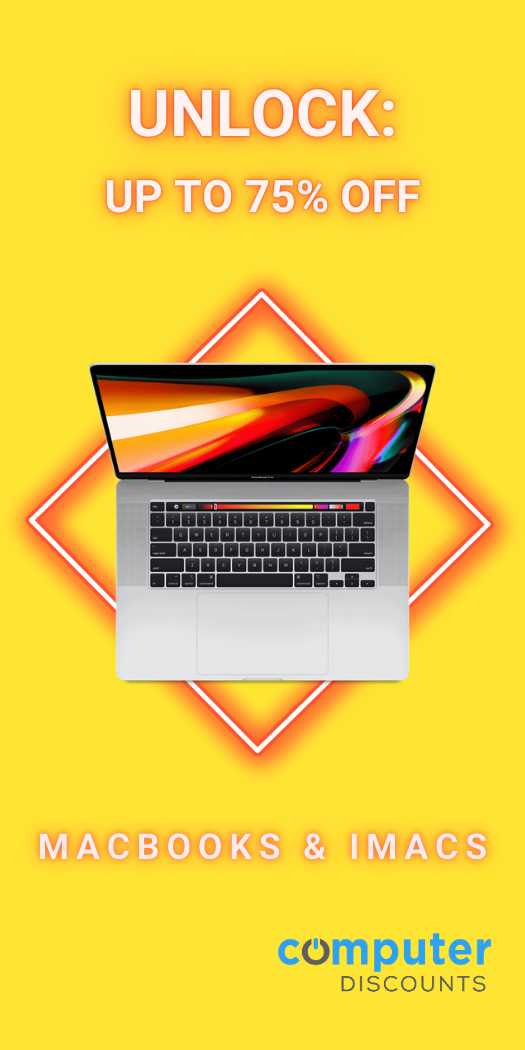When it comes to purchasing a computer, you may be overwhelmed by the number of choices available. Laptops and Chromebooks are both popular options in today’s market, but they serve different purposes and offer unique benefits. To help you make an informed decision, it is important to understand the key differences between a laptop and a Chromebook.
What is Laptop?
A laptop is a portable personal computer that offers all the same features as a standard desktop machine in a smaller form factor. It’s designed to be used with an on-screen keyboard and trackpad or trackball, making it ideal for people who want to work from anywhere. Laptops are often more expensive than desktops since they are specifically designed to be mobile friendly and require battery power.
Laptops typically come pre-installed with either Windows or Mac OS operating systems, meaning they run the same programs and applications available on traditional computers. The main benefits of owning a laptop are its portability, allowing you to take your work anywhere, and its compact size, which makes it easier to store away when not in use. Battery life is an important consideration when purchasing a laptop as well – the longer it lasts, the further away from an electrical outlet you can work. Ultimately, laptops provide maximum convenience while still offering all of the functionalities of a full-sized computer.
What is Chromebook?
Chromebooks are a great option for those who are looking for an affordable, lightweight laptop that can do basic tasks. Chrome OS is the main focus of this device and it is designed to be used predominantly through Internet connection. It is not only faster than traditional laptops and more convenient to use but also makes better use of the cloud computing technology. When compared with typical laptops, Chromebooks lack the processing power required for demanding tasks such as gaming or CAD; however, most users find them to be perfect for day-to-day requirements like browsing websites, sending emails, writing documents or watching movies.
The various apps available on Google Play Store enable users to extend their usage beyond these basic applications as they don’t need to worry about local storage capacity. Moreover, due to its fast boot times and longer battery life compared other PCs (especially laptops), Chromebooks make it very easy for users to take advantage of these online resources without having to restrict themselves to a desktop environment. All in all, the Chromebook provides an amazing value experience despite its affordability without compromising on quality or performance.
Comparison between laptops and Chromebook:
Operating Systems
Operating systems form the basis for how computers work. They enable a user to manage and control their device’s software and hardware, allowing them to run applications, store data and control what tasks can be performed on the machine. The most common operating systems are Microsoft Windows for laptops and desktops, Mac OS for Apple devices, and Google Chrome OS for Chromebooks.
Microsoft Windows is a full-fletched system that offers users a wide range of features to take advantage of. It allows the user to access programs, gaming platforms, media playback applications; it also contains an extensive library of files necessary in order to run these applications. On the other hand, Mac OS is designed specifically for Apple devices such as their MacBooks and iMacs, offering an even more customized experience tailored toward those products. Lastly, Google Chrome OS is much simpler in comparison as it primarily based around its browser—though it does offer a few additional features like photo editing software or word processing made possible by its integration with other Google services. All three operating systems offer unique experiences depending on the need of its user base who may want more specialized uses from their computer or laptop setup.
Performance
When it comes to performance, laptops are generally considered the better choice. This is because they offer higher speed, greater storage capacity and much more powerful hardware components than Chromebooks. High-end laptop models such as gaming and video editing machines come with powerful processors, a large amount of RAM and the ability to handle multiple tasks simultaneously, which makes them ideal for resource-intensive activities.
Recent advancements have resulted in the availability of premium Chromebook models that can offer similar performance in specific aspects. The Google Pixelbook Go is a powerful Chromebook with an Intel Core i7 processor and 16GB RAM, making it a top choice. With such performance capabilities, these devices are capable of competing with some laptop models when it comes to intensive activities like gaming or video editing.
Microsoft Office
The Microsoft Office Suite is one of the most popular set of productivity tools used by many professionals around the world. Unfortunately, it cannot be installed on a Chromebook as they are not compatible with the platform. That doesn’t mean you can’t enjoy these tools if you have a Chromebook though. Microsoft offers their own cloud-based version of Word, PowerPoint, Outlook, Excel and One Note that can be fully accessed from Chrome OS devices. This makes the transition from Windows to Chrome OS much smoother for users who frequently use Office for their work since all of their existing documents and spreadsheets remain available even when using Chrome OS.
In addition to the Microsoft applications, Chrome also has native Google Docs and Sheets which are fully compatible with word processing tasks such as typing up documents, creating presentations or even making tables or spreadsheets. Furthermore, although this isn’t an app necessarily, Chrome’s ‘Add To Home Screen’ feature allows you to easily favourite websites just like if they were apps – perfect for quickly accessing your regular bookmarks and services without having to type in their address over and over again in the browser’s search bar.
Printer Access
Using a Chromebook to print documents and other prints can be done with one notable exception; you cannot directly connect the device to a printer via USB or Wi-Fi. Google Cloud Print is the only way that printing from a Chromebook is possible. This service allows users to route their print jobs to compatible Cloud Print-ready printers on any network, in any location they are authorized to use. The Google Cloud platform also allows multiple Chrome OS devices to connect with a single printer at once – making it easier for busy households or workstations to share one device easily.
Google Cloud Print is relatively simple and convenient overall; in most cases, you only need your printer’s email address in order for it to be registered for use with the cloud prints service. Once the registration process is complete, you’ll be able to send documents from any internet-connected Chromebook directly to the printer by using some of Google’s built-in applications, like Gmail and Docs. Additionally, Google Drive integrate well with Chrome OS and many files can be printed should they meet the criteria set forth by your chosen printer/network configuration.
Storage
The storage capacities of Chromebooks have been a source of contention amongst users. When compared to the great local storage found on both Windows laptops and MacBooks, Chromebooks come up lacking in this department. Rather than having a large amount of local storage space, most Chromebooks come equipped with minimal internal memory that can’t even compare to the larger counterparts in terms of offline use. What is available however is 100 gigabytes of free Google Drive cloud storage which can be used for online operations such as streaming music and movies or saving images for long-term access, but it doesn’t quite replace the fullness that a lot of personal media files feel when stored locally. This often makes the usage of the online tools on Chromeboooks more limited than on those machines specifically designed for offline tasks.
For people who are seeking out value over quantity, this lack of local storage may not seem like much of an issue at all. They might prefer the idea that their data is accessible anywhere and everywhere as well as being backed up without any manual effort required on their part until they need it again. Still, there is no denying that there are individuals wanting higher quantities in terms of hardware in order to access more information securely no matter
Security
Chromebooks have become known for their impressive and reliable security features, which are amongst the best in the laptop world. Unlike a Windows laptop, they do not require any additional software to be installed such as anti-virus or firewall protection; instead, Chromebooks run off of Chrome OS which is designed to protect against malware by default. This decrease in manual maintenance is made even more effective by the fact that all of the primary data storage is handled securely by Google servers. Chromebooks have become renowned for being as close to “hacker-proof” as you can get, making them an ideal choice for those who want peace of mind when it comes to their device’s security.
When it comes to security, Chromebooks are built for maximum ease and efficiency. Thanks to their already built-in layers of protection from malware and viruses, users don’t need to worry about manually installing antivirus software on their systems; rather, all they need is an internet connection in order to stay ahead of potential threats from cyber criminals. Furthermore, having data stored with Google servers enables a much higher level of encryption when compared with traditional laptop storage methods. Ultimately, this makes Chromebooks one of the safest laptops.



